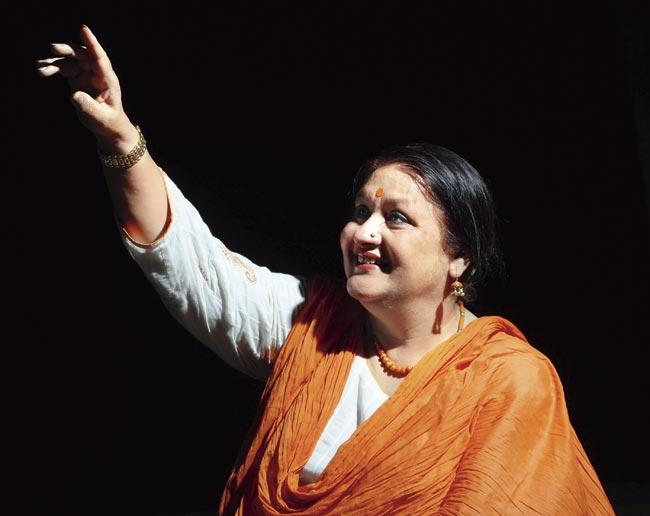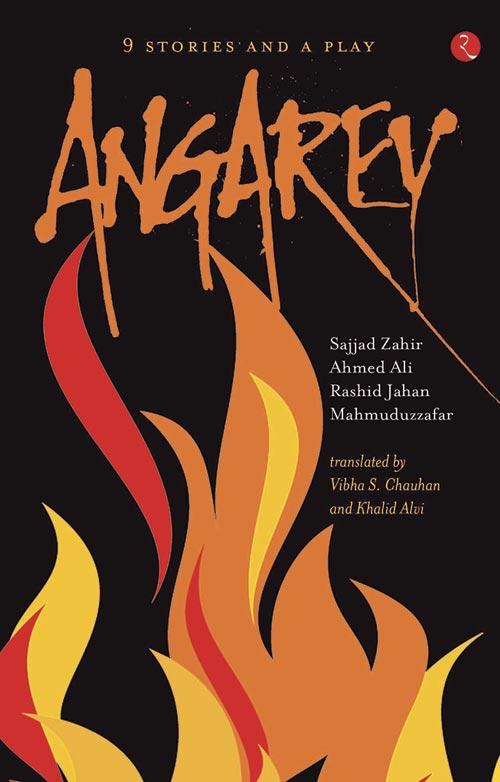In another time and age, Angarey, a collection of nine stories and a play, would have required no introduction

Book review: Angarey
In another time and age, Angarey, a collection of nine stories and a play, would have required no introduction. Written in Urdu, and published in 1932, the collection of stories germinated the idea of Leftist writing in India and along with it, the possibility of a ban on books for it being one of the earliest ones to have received widespread condemnation.
ADVERTISEMENT

Nadira Babbar, daughter of Sajjad Zahir, in the foreword, says “If I now look at the plays that I have written with an outsider’s gaze, I am amazed to find how they become connected to some of the themes that raise their heads in Angarey. My plays such as Saku-Bai and Daya Shankar ki Diary discusses social issues...” File pic
Written by four distinct personalities Sajjad Zahir, Ahmed Ali, Dr Rashid Jahan and Mahmuduzzafar, the anthology comes together for its plurality of voices. All four writers in various settings and scenarios expose the redundancy of class and gender divides as the oppressed unsettle the oppressor.

9 stories and a play, Translated from Urdu by Vibha S Chauhan and Khalid Alvi, foreword by Nadira Z Babbar, Rupa Publications. Rs 195. Available at leading bookstores
The translators-cum-professors, Vibha S Chauhan and Khalid Alvi, have given such powerful prose a new lease of life as it re-introduces the fervour and boldness of narrative and of people who wanted to think of the nation in new terms. Take for example, Heaven Assured! by Zahir, where the maulvi dreams of naked houris (beautiful young women who exist in paradise) while hugging the Quran, making it clear why the stories shook the basic norms of society.
The fluidity of identity and attempt to understand religion, society, class structure and gender from scratch characterises the modern framework in which the works have been written. The introduction is replete with references to aid the reader in understanding the kind of thinkers and writers that would have influenced the quartet.
The first story, A Summer Night by Zahir is direct in expression, owing fidelity to truth as it narrates how Munshi Barkat Ali, a secretary in the court of law is out on a stroll taking in the sights and sounds of Lucknow. While being out, Ali meets Jumman, the peon who relates his plight of being broke as it is the end of the month.
Consumed with guilt, the Munshi is only led to escape it by latching on to a more affluent college friend who decides to indulge the munshi by visiting a kotha, heightening the irony of class and apathy along with it. Reminiscent of prose by Saadat Hassan Manto, the characters speak in pungent voices as women characters in Rashid Jahan’s one act play do not hesitate in saying ‘haraamzadi’ in the same line where they mention childcare.
Insomnia is another haunting tale that reads like an unending monologue or dream punctuated by the buzzing of mosquitoes in the ear, and Ghalib’s verses. The audacity in form and content in this title is still aflame as is the anguish. Even after almost 80 years of the writing, it still rings true with the readers.
 Subscribe today by clicking the link and stay updated with the latest news!" Click here!
Subscribe today by clicking the link and stay updated with the latest news!" Click here!






